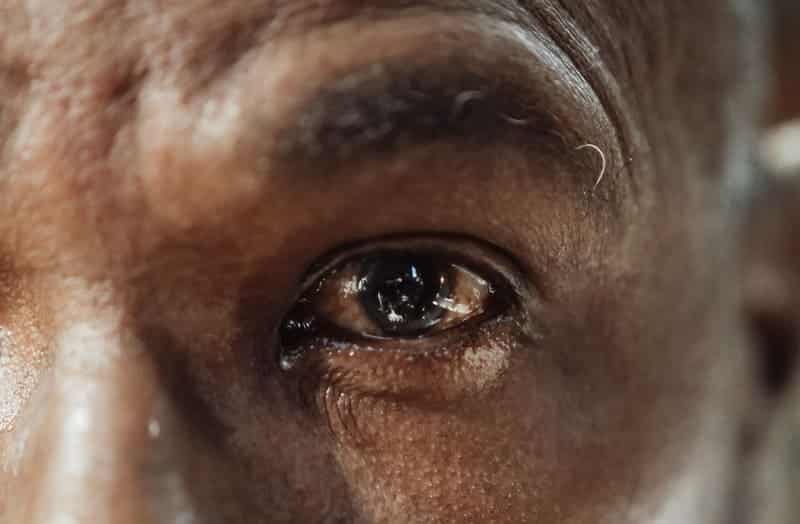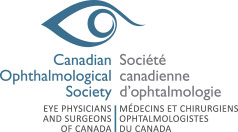Ask the ophthalmologist about...
Eye Injuries
We asked Dr. Hooper your questions about eye injuries to help us better understand how they happen and steps we can take to help keep our eyes safe as we work and play.

Dr. Phil Hooper
Ivey Eye Institute, London, ON
Dr. Phil Hooper is a leading Canadian ophthalmologist with a clinical focus on uveitis and retinal diseases. He is the immediate past president of the Canadian Ophthalmological Society (COS).
What are some of the most common causes of eye injuries?
A lot of the eye injuries I see in my practice are sports related; they’re usually the result of a blow to the eye from a ball, elbows, or hands. Contact sports like basketball and boxing pose a particularly high risk of injury. Workplace eye injuries are also quite common. People who work with chemicals or in construction, carpentry, or other industrial settings are at the greatest risk. Weekend chores like yard work and home repair projects are another major cause of eye injuries – hammers and power tools like drills and saws can send sharp objects or debris flying up toward the eyes.
The good news is that the vast majority of these injuries can be prevented by wearing the right protective eyewear. Look for CSA-certified glasses or goggles and wear them in any potentially risky situations.
What types of eye injuries are most likely to occur when playing sports? Which sports cause the most eye injuries?
Sports-related eye injuries can range from corneal scratches and eyelid lacerations to more severe blunt-force trauma that can cause orbital fractures or even retinal detachment, which can result in complete vision loss. Most sports-related eye injuries occur in basketball, baseball, and racquet sports – but any activity with a high-velocity projectile (like paintball) can be dangerous. Combat sports like boxing and martial arts are more likely to cause a serious or even blinding eye injury.
To protect your eyes, ensure both you and your kids wear the right kind of eye protection for the sport you’re playing. Often, that means glasses or goggles with impact-resistant, shatterproof polycarbonate lenses. Sports like hockey or lacrosse require helmets with polycarbonate face masks or wire shields. And if you’re on snow or water, wear protective glasses or goggles with UV protection to shield your eyes from harmful UV rays and reduce glare.

A stone got kicked up from my lawn mower and hit my eye. Now the eye is bloodshot, but my vision seems normal. Should I see a doctor?
Eye injuries can sometimes be more serious than they appear, and serious injuries can lead to vision loss or even blindness. In general, any eye injury other than small scratches or grit in the eye may be potentially serious.
If you’ve damaged some of the structures inside your eye, you might be more likely to experience severe consequences such as glaucoma, retinal detachment, or development of cataracts. Even if you think an injury is minor or you aren’t sure you’ve injured your eye, it’s a good idea to get checked out by an eye care professional or other medical doctor. They can assess the severity of the injury and provide the appropriate treatment to help reduce the risk of long-term vision loss.
Our family loves celebrating holidays with fireworks! What should I know about fireworks and eye safety?

Fireworks are a fun way to celebrate with family and friends but it’s important to be aware of the risks and take recommended safety precautions. When not handled properly, fireworks can cause burns and injuries, including serious eye injuries. Firework-related eye injuries tend to be especially severe because fireworks combine force, heat, and chemical exposure – they can cause anything from burns to ruptured eyeball and retinal detachment. Even sparklers, which many people assume to be safe for kids to play with, burn hot enough to cause serious burns.
The best way to avoid a potentially serious injury is by attending a professional, public fireworks show rather than buying fireworks for home use. If you decide to use fireworks at home, there are some safety precautions you can follow to help ensure your fireworks displays are fun and memorable (for the right reasons!):
- Keep your distance – even bystanders can be injured by fireworks
- Wear safety glasses when handling and lighting fireworks
- Make sure everyone holding a sparkler is at least 5 years old and kids are closely supervised
- Hold lit sparklers at arm’s length and away from other people
If you do experience an eye injury from fireworks or a sparkler, get medical attention right away.
I’m shopping for toys for my kids’ upcoming birthdays. What should I look out for from an eye safety perspective?
It’s great that you’re considering eye safety when shopping for gifts for kids. Eye injuries among children are one of the major causes of visual impairment. Many kids end up in the ER with toy-related eye trauma each year, so it’s important to take precautions.
Here are a few tips to help prevent eye injuries when it comes to toys:
Avoid toys that pose a high risk of injuries – lasers, sharp toys, aerosols like silly string, and flying or projectile toys come to mind
Show kids how to properly play with the toys in a safe manner
Keep toys that pose a potential eye injury risk away from children unless supervised by an adult
If you’re giving sports equipment as a gift, make sure to include the appropriate protective eyewear
Ever since using a power sander yesterday, it’s felt like there’s something in my eye. Should I be worried and what should I do?
The feeling you describe, of something rubbing against your eye when you blink, is called foreign body sensation. While it can be caused by a number of eye conditions, it’s also possible you’ve scratched your eye. If you have, you might also be noticing redness, irritation, and excessive tearing. Eye scratches and corneal abrasions are common and can be caused by anything from sand or sawdust in your eye to your pet’s claws. The good news is that most are minor and will heal on their own within a few days. It’s a good idea to get your eye examined if the sensation is severe or doesn’t settle in a few hours. It is possible that the foreign body is embedded in the cornea or stuck to the lid and causing continued irritation. Using the slit lamp and high magnification, the eye can be examined and any remaining material removed. If severe scratches are present, your eye care professional can then advise you on the best approach to speed up healing. They might prescribe an antibiotic eye drop to help prevent infection and steroid eye drops to reduce inflammation and lower the chance of scarring. You might also be given lubricating eye drops to help reduce discomfort.

There are things you can do to help provide some relief while the injury is healing. Blink often and rinse your eye with saline solution or clean water. You might notice that your eye is sensitive to light, so wear sunglasses when heading outdoors. Try not to rub or touch your eye and avoid wearing contact lenses until your eye is fully healed. If you notice persistent or worsening pain, vision changes, or are worried about your eye, head to the emergency room.
What can I do to help keep my family’s eyes safe from injury?
Eye injuries are common and while accidents happen, the reality is that most of these injuries are preventable. The easiest step you can take to reduce your risk of eye injury is to wear proper protective eyewear. It can prevent up to 90% of all eye injuries! Look for CSA-certified safety glasses and use them whenever you’re doing anything risky around your home – yard work, home repairs, or even using chemical cleaning products. Not only will you help keep your eyes safe, but you’ll also be acting as a good role model for your kids and instilling safety habits in them.
Ensure both you and your kids wear sports eye protection – especially for high-risk sports and recreation like baseball, basketball, racquet sports, hockey, and paintball. Keep eye safety top of mind when choosing toys for your kids. Remember that the sun can cause injury to your eyes, too. Shade your family’s eyes from harmful UV rays with sunglasses that offer 100% UVA/UVB protection – that goes for kids and babies, too. Protecting your eyes from injury is one of the simplest things you can do to maintain lifelong healthy vision.

